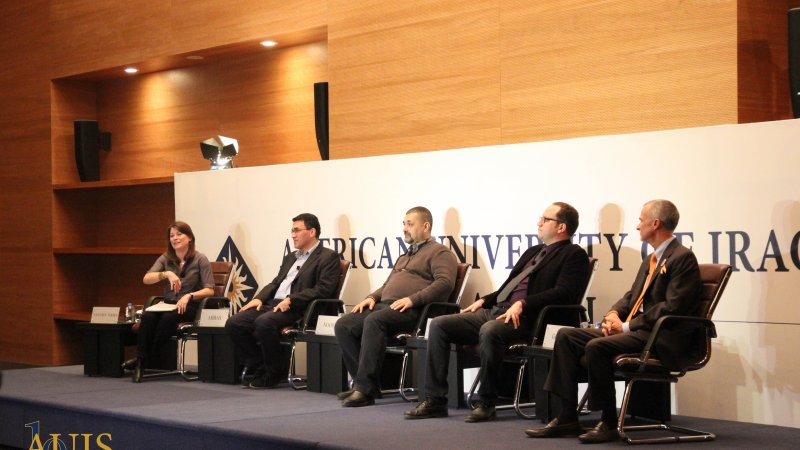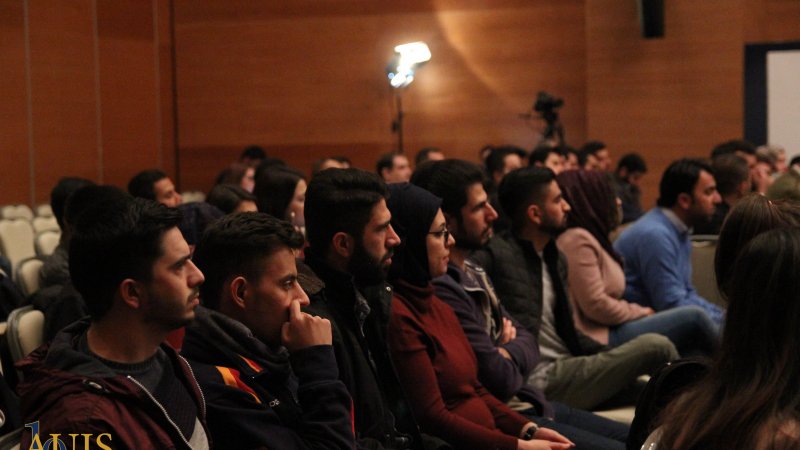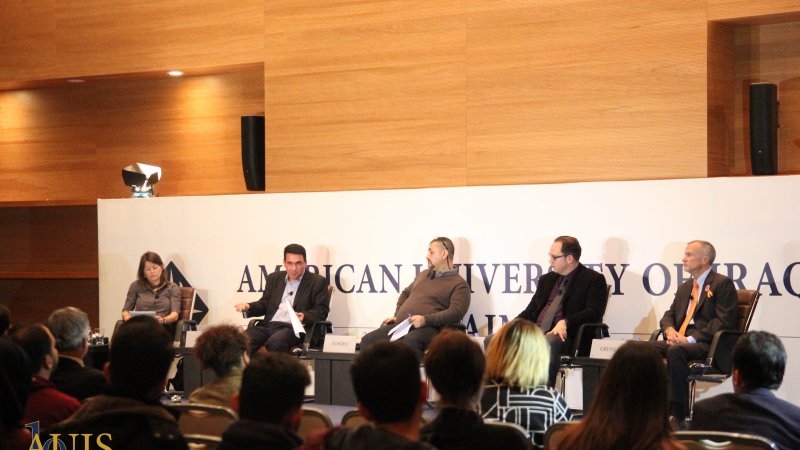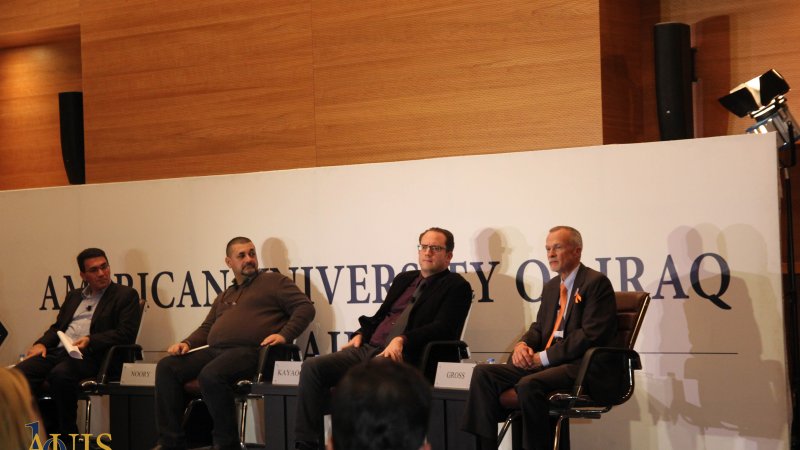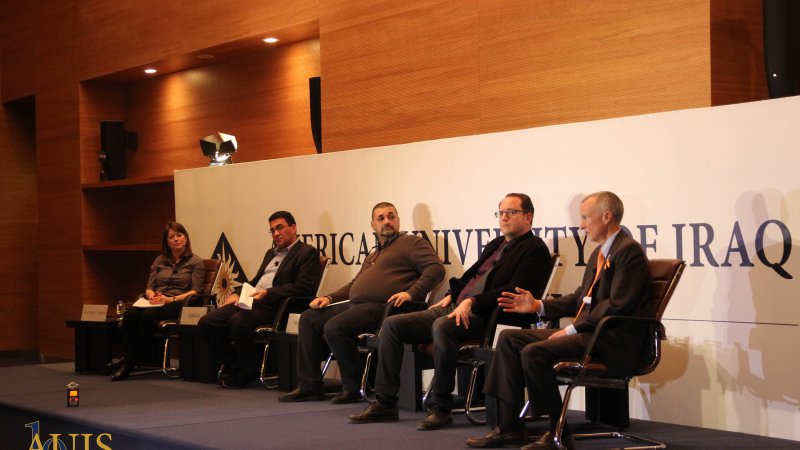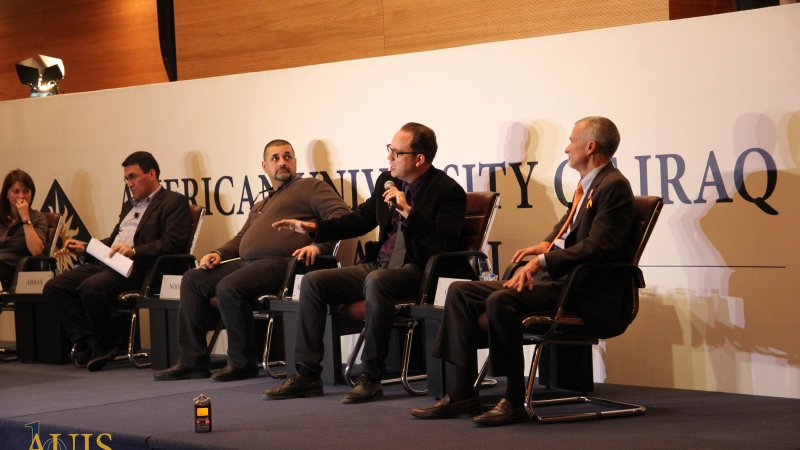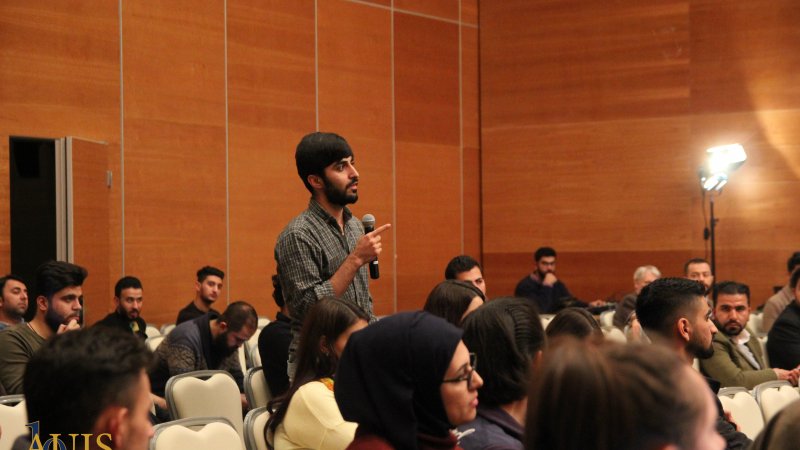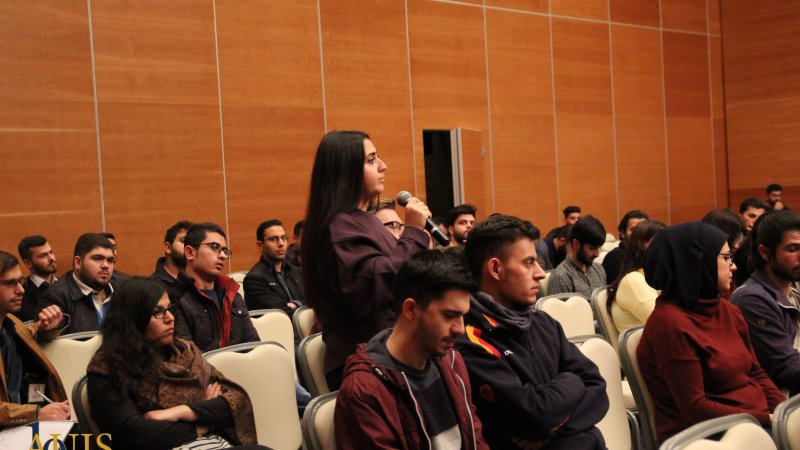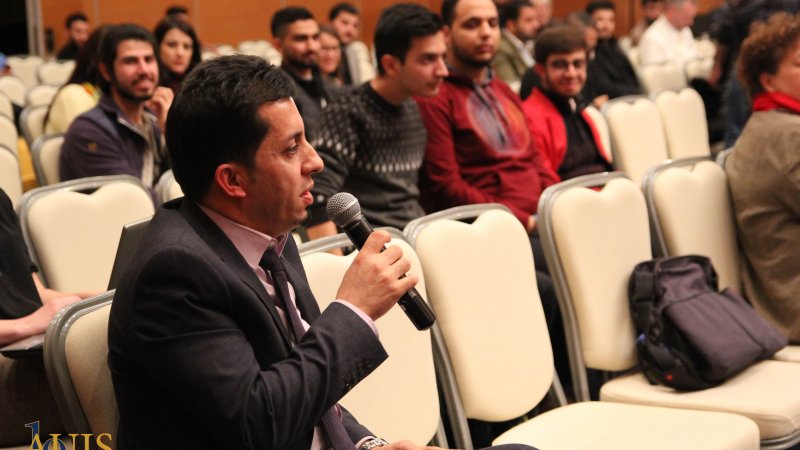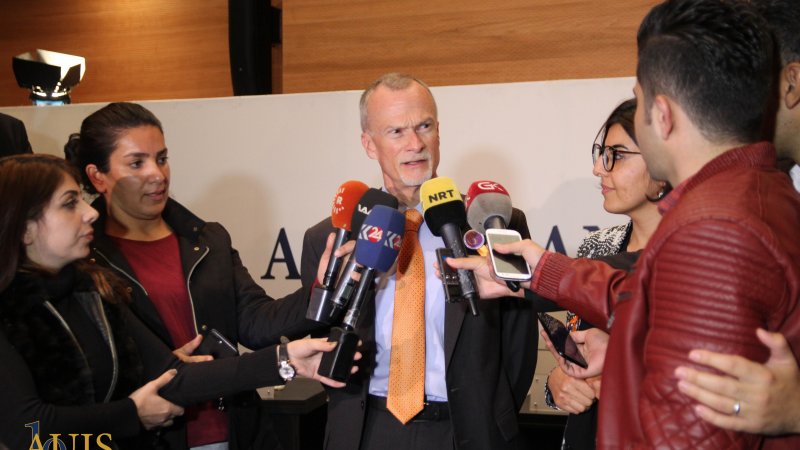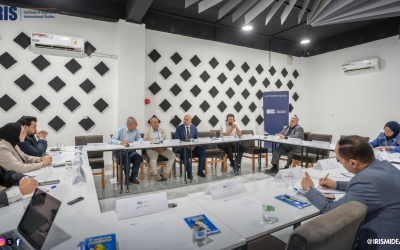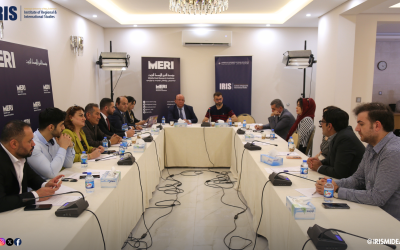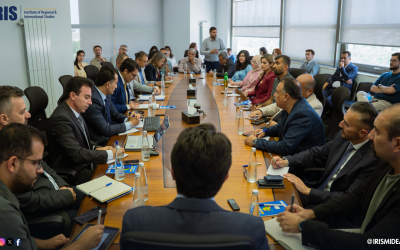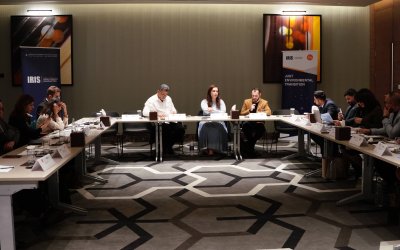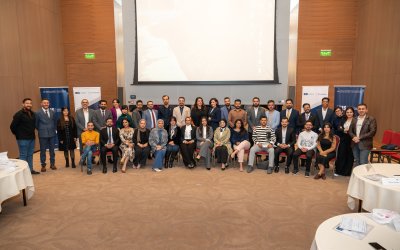On November 28, 2017, IRIS hosted the United States Consul General in Erbil, Ken Gross, at an event titled “Charting a Path Forward for the Kurdistan Region and Iraq” to discuss U.S., regional and local policies in the aftermath of the referendum and the war against ISIS. Consul General Gross spoke on a panel with AUIS professors, Drs. Akeel Abbas, Alan Noory, and Barin Kayaoglu, moderated by IRIS Director Christine van den Toorn.
Dr. Noory started the discussion with lessons learned from the emergence of a Kurdish political elite in the aftermath of Saddam’s defeat and withdrawal from the Kurdistan region in 1991. This withdrawal marked a turning point for Kurdish leadership, not only in the sense that a political elite emerged from the military conflict, but also in the way that two competing narratives evolved about the relationship between Kurdish political elites and the rest of the Kurdish population. From the perspective of Kurdish political leadership, their success in the fight against Saddam meant that they were irreplaceable to the Kurdish population. They could use historical trauma as a means to retain power in the region. The Kurdish population, on the other hand, recognized that in areas where the political elites failed, they had the power to mobilize. Humiliation and defeat could not be a permanent state of mind or means by which to prevent creative solutions toward reform in the Kurdistan Region.
Dr. Noory expressed concerns that the Kurdish leadership was not in fact charting a new path forward; he described the Kurdish leadership as unwilling to make a deal with Baghdad and to commit to a democratic Iraq, noting that to date they have not even been able to invest in democratic institutions closer to home.
Dr. Abbas followed up Dr. Noory’s explanation by elaborating on the emergence of a new political arrangement both in Baghdad and in the relationship between the Kurdistan Region and the rest of Iraq. The power sharing agreement between Sunnis, Kurds, and Arabs established after 2003--which served as an exacerbating factor in sectarianism and the creation of an institutionalized spoils system--began to collapse after 2014. The emergence of ISIS, collapse of the Iraqi army, and dissolution of the Shia victimhood narrative created a greater sense of responsibility and pragmatism among the Shia Iraqi populace. In Kurdistan, however, this realization of the collapse of the power sharing agreement has not yet taken place. Likewise, the victimhood narrative shared by the Kurdish population and political elite has not yet dissolved. Both realities will pose obstacles to Kurdistan moving forward.
Mr. Gross then addressed U.S. policy toward Iraq and the Kurdistan Region, firmly emphasizing the U.S. commitment to a “One Iraq” policy, but with a strong Kurdistan Regional Government. In the aftermath of the referendum, the U.S. is encouraging and supporting talks between Baghdad and Erbil.
Mr. Gross also took the opportunity to clarify the U.S. position on the referendum. He noted that the issue of independence had come up multiple times in discussions with the Kurds over the past several years. When it emerged as a real, imminent possibility, the U.S. urged the KRG not to hold the referendum for a number of reasons. First, the Kurdistan Region seemed to be in a good place. Despite the economic crisis, it had more territory than ever before, opportunities for negotiations, and a strong role in successful operations against ISIS. Nevertheless, the U.S. continued open dialogue with KRG leadership, even after a date for the referendum was announced. The U.S. proposed alternatives to the referendum, including facilitated negotiations with Baghdad to reach a real settlement on outstanding issues. However, these alternatives were not accepted.
Responding to a question from an AUIS student, Mr. Gross stated that the main question behind supporting a referendum was not based on whether it was democratic, but rather on whether it was legal under the constitution. If the goal of the referendum had only been to gauge Kurdish views of independence, then reactions by the U.S., as well as regional neighbors, may have been different. However, because the goal seemed to be control over territory, the reaction by Baghdad and regional neighbors was much stronger. This reaction was one of the issues discussed when the U.S. proposed alternatives to the referendum.
The U.S. supports a unified Iraq not on the basis of a conditional understanding of democracy, but rather the constitution. In the absence of any law that would have allowed the KRG to hold a referendum, the U.S. continues to promote a One Iraq Policy. Nevertheless, it remains concerned about abuses in places such as Tuz Khurmatu, where it is working to determine an accurate picture of events and, if a judicial framework is established, to work with local authorities.
Dr. Kayaoglu responded with an explanation of Turkish policy toward the Kurdistan Region and Iraq, explaining that while there will likely not be a shift toward pro-KDP/KRG policy in the near future, Turkish policy in general is unpredictable. From 2014 to early 2016, Turkey claimed it would not be part of the conversation about whether the KRG should hold an independence referendum. However, after the referendum was announced, it encouraged a united Iraq, and even supported the federal government’s reassertion of control over disputed territories. Because Ankara considers the Kurdish question within the context of the Syrian civil war, its focus will be on how it can roll back PYD gains in Rojava and apply pressure to the PKK. This policy is unlikely to change until at least the parliamentary elections of 2019. In regard to the Erdogan administration’s policy toward Iraq and the Erbil-Baghdad relationship, it will likely provide vague support to whatever agreements are made between the various parties in Baghdad.
To conclude, Ms. van den Toorn summarized panelists’ comments in the context of the theme of the event, “Charting a Path Forward,” noting that the “Fall of Mosul” and “Fall of Kirkuk” mean that things cannot go back to the way they were before. While at different stages, there are signs in Iraq and the Kurdistan Region that leadership will be held accountable, and that populations can mobilize to this end. In terms of relations between the KRG and federal government, while the U.S. supports negotiations, it is not clear whether Erbil and Baghdad can agree to conditions under which those negotiations would begin. Similarly, while the U.S. supports a strong KRG within a federal united Iraq, is not clear as of yet whether the Kurds are willing to accept such a future.

